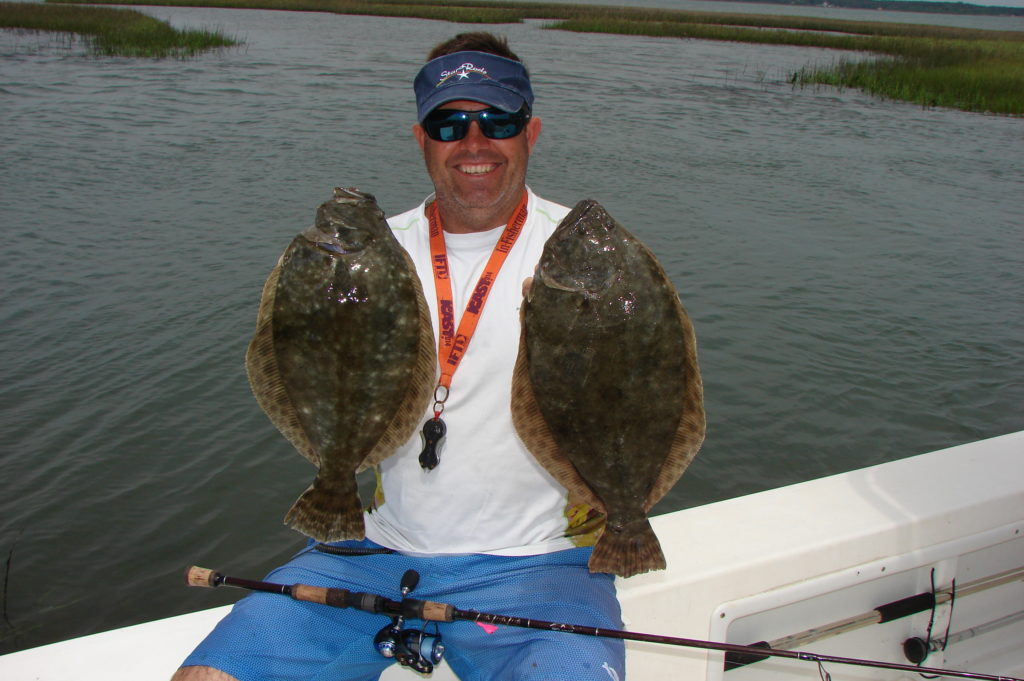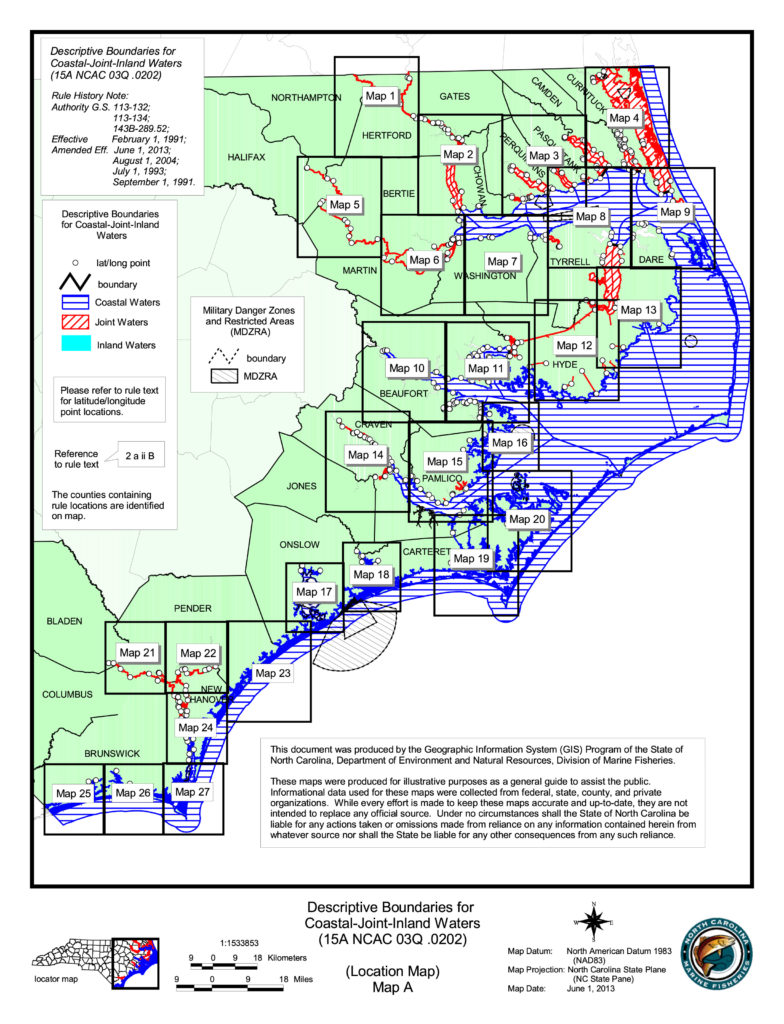
NC flounder 2023: two different season, two different limits
North Carolina recreational fishermen will have two flounder seasons this September! Yes, that’s right! The two agencies that regulate recreational fishing in North Carolina can’t agree on a flounder season for 2023, so each will have their own. Adding to the confusion for recreational fishermen is that the two seasons will be for different waters and flounder will be illegal to possess in the other waters while either season is open. What?
Typically, North Carolina recreational fishing is regulated by the Marine Fisheries Commission in Coastal and Joint Waters and by the Wildlife Resources Commission in Inland and Joint Waters. This requires cooperation between the agencies for regulations and enforcement in Joint Waters.
Coastal Waters include the ocean out to 3 miles and most rivers, creeks and the Intracoastal Waterway, just inside the inlets. Inland Waters are farther inland, typically far enough upriver the water is considered fresh. Joint Waters are the waters between Coastal and Inland Waters that may be freshwater, saltwater or a brackish blend of the two, depending on the amount of recent rainfall. Not everywhere has Joint Waters.
At issue with the two N.C. flounder seasons is the timing, the number of fish allowed to be kept and the bodies of water. Regarding the bodies of water, there is no argument that the Marine Fisheries Commission controls Coastal Waters and the Marine Patrol enforces the regulations or that the Wildlife Resources Commission controls Inland Waters and Wildlife Officers enforce the regulations. The name implies that Joint Waters regulations and enforcement involve cooperation between the two agencies, but, at least for the 2023 flounder season(s), it doesn’t seem to be the case.
Two-fold conundrum
The North Carolina flounder conundrum is two-fold, with the questions of each agency scheduling separate flounder seasons with different time frames and limits and deciding who draws the responsibility for Joint Waters. Regulations and limits are important, particularly for a species where the federal fishery agencies are demanding the catch be curtailed for the continued viability of the species. This becomes even more problematic when two agencies assume control and responsibility for enforcement on the same (Joint) waters.
A spokesman for the Wildlife Resources Commission said their 2023 flounder season will run from September 1-14, with a 15-inch (total length) minimum size and a limit of 4 flounder per fisherman per day. They said this season was for Inland and Joint Waters. A spokesman for the Division of Marine Fisheries said their 2023 flounder season will run from September 15-29, with a 15-inch (total length) minimum size and a limit of 1 flounder per fisherman per day. They said this season was for Coastal and Joint Waters. The disagreement is over the season(s) in Joint Waters.
A major part of the problem arises from fishermen needing to travel through waters where the season is closed to fish in waters where the season is open. They’re fine on the way to fish, but any flounder they keep becomes an illegal catch when they travel through the closed waters on their way home. Many of the creeks that will be open for flounder fishing during the September 1-14 WRC season don’t have marinas or launching ramps and fishermen must cross closed waters to get there and back.
What’s a fisherman to do? The correct answer is to follow the rules, even when they disagree. That may prove difficult during the two 2023 N.C. flounder seasons.
A link to the maps that show the boundaries of Coastal, Joint and Inland waters can be found at https://www.deq.nc.gov/water-quality/coalition-program/maps/coastal-joint-inland/dbcjiw-map-index/download.





This is an unusual situation in defining catch, possession, limit. Also, is the inland season closed after 9/14. I’m saying yes. So inland is closed to flounder fishing while joint and coastal waters are open 9/15-929.